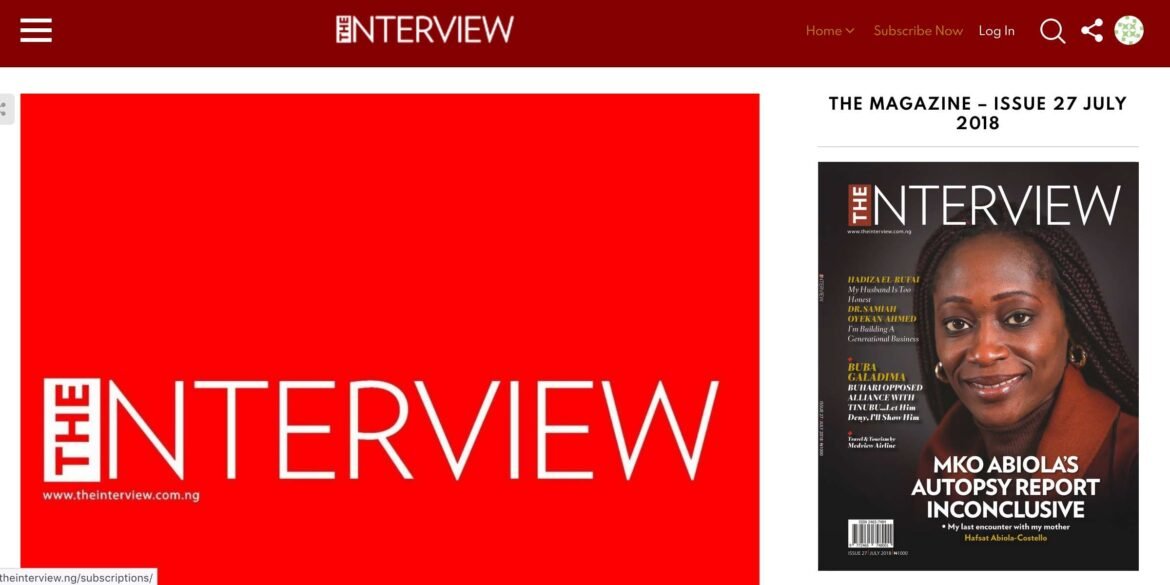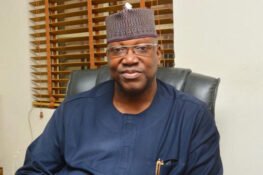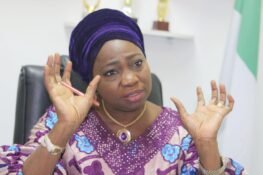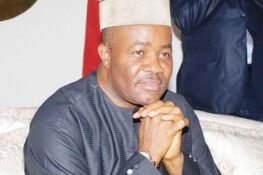It was an unexpected gift on the eve of his first year in office. The Senate has cleared all those put forward by President Muhammadu Buhari for confirmation nearly four months ago, except the acting Chairman of the Economic and Financial Crimes Commission, Ibrahim Magu.
So, after one year in office, instead of a letter of appointment, what Magu got was a dagger in his back.
Those who plunged the dagger are not relenting; they’ll continue to twist the knife in his wounded side until something gives.
They’re the same old cabal – the renegade forces that haunted NuhuRibadu out of office and installed their surrogate; those who made Ibrahim Lamorde’s tenure a nightmare; the forces determined to eat the country alive.
They’re still at work.
They may have changed parties, migrated to new alliances or invented new methods. But their goal has never changed: to have the country for lunch.
And Magu is standing in their way.
On Friday, the Commission issued a statement that forces bent on tarnishing Magu’s image were spreading malicious messages claiming he was bullying and victimising staff, a number of who had resigned in protest.
Not done yet, they added that Magu was on a mission to blackmail some highly placed appointees and traditional rulers in desperation to get confirmed.
It doesn’t make sense. Not from Magu’s history since he joined the police or from his record so far at the EFCC. Magu was one of the most outstanding officers in the Special Fraud Unit of the police between 1996 and 2002.
Yet, he loathed publicity so much, when he was appointed to the top job in November journalists scoured the Internet for bits of his photo to stitch together.
Magu handled some of the most dangerous and difficult cases in the EFCC, from the case of his brother-in-law and former MD of the Bank of the North, Mohammed Bulama, who was jailed for fraud and later pardoned by former President Goodluck Jonathan; to investigations into Societe General Bank under current Senate President BukolaSaraki; and the case of the disgraced former Inspector General of Police, TafaBalogun.
But it was probably from the Class of Governors of 1999 that Magu made his most deadly and powerful enemies. His investigation was central to the case against former Governor James Ibori; the impeachment of Ekiti State Governor AyodeleFayose (in his first coming); and the impeachment and jailing of former Bayelsa State Governor DiepreyeAlamieyeseigha.
Former governors Joshua Dariye, now a senator; and SaminuTuraki, also members of this Class, are more than happy to hang Magu with a fishhook.
It’s something of a miracle that he is not only standing, but has progressed in his career in defiance of the remnants of the old network and the migrants that have since joined his formidable enemies, even under President Buhari’s government.
Magu’s confirmation is obviously the latest battle, but it won’t be the last.
Those who insist that he can only be confirmed over their dead bodies deny their own desperation, accusing him instead of desperation to get confirmed. But of course, they’re just as desperate to get him out of the way as he is to do his bit for a blighted country.
It’s a clash of desperations, if you like – the obvious desperation of Magu’s detractors to cover up corruption and its destructive impact versusMagu’s desperation, as it were, to expose and save the country from its malignancy.
The real problem is that the rest of us are either too blind to see or too engrossed in the pursuit self-interest to care. Let the man carry his own cross.
It’s a familiar story of change anywhere, but in developing countries it is particularly complicated and difficult. In Michela Wrong’s thrilling book, entitled, “It’s our turn to eat,” we read of the epic battle of Kenya’s anti-corruption czar, John Githongo, to root out corruption under MwaiKibaki and how the mafia surrounding the president fought back, until Githongo fled for his life.
More than a job confirmation, it was a matter of life-and-death. Those who wanted Githongo out to block the $1billion Anglo Leasing scandal he wanted to expose threw everything at him, from slender ropes of lies to chilling threats of assassination.
What about the man who appointed Githongo to the job, President Kibaki?
Here is what Wrong said about him, “If a leader is surrounded by shifty, money-grabbing aides and family members, it’s because he likes it that way. These are the people he feels at ease with, whose working methods he respects. Far from being an aberration, the entourage is a faithful expression of the autocrat’s own proclivities.”
Buhari is not Kibaki. But there are troubling questions. If after one year, the Buhari-led APC government, which has a majority in the National Assembly, is unable to confirm the appointment of the most visible face of the government’s anti-corruption war, what message is he sending to the public?
If in one year during which the government has claimed that one of its greatest successes so far is the fight against corruption the Department of State Security has still not cleared the head of the government’s anti-corruption agency, who is to say this war is sustainable?
In short, what does Magu’s maliciously delayed confirmation say of honesty, hard work and the seriousness of Buhari’s government to fight corruption?
You don’t have to like Magu. His biggest haters are either in the President’s cabinet or his party. In fact, in an attempt to weaken Buhari’s hand, some of them have likened Magu to Mohammed Rafindadi, the DG of the Nigerian Security Organisation, whose strong-arm tactics worsened Buhari’s human rights record in his first coming.
Such nonsense is worse than comparing apples with oranges. Show me an anti-corruption czar who succeeded by pleasing the high and mighty and I will show you the graveyard of countries eaten alive by corruption.
We can’t have it both ways.
Magu has paid his dues. He did not beg for the job and I hope he will not beg to keep it.
If all he was interested in were an easy, comfortable life, three months of unjustified detention in 2008 under Farida Waziri, followed by a succession of two harsh postings, would have done it. But his travails have only brought out the best of his professional career.
If after the progress made on his watch at the EFCC in one year, including the recoveries of over $3billion as at May, Buhari still does not know what to do with him and Saraki’s Senate will not confirm him, let’s send him to Kenya where Uhuru Kenyatta needs someone to finish the work that Githongo started.
And then, we may return to business as usual and pave the way for those who believe it’s their turn to eat.
Trump: A New Winning Formula
Donald Trump’s emergence as the 45th president of the U.S. has shown a new path to victory in politics. Outrage wins. We saw it earlier when Nigel Farage and Boris Johnson tipped the referendum for Brexit by raking the UK over the coals and playing to the worst fears of citizens. The US election has turned out to be Brexit plus. Trump won by doing exactly what he was not supposed to do to win – he despised minorities, defied his party, talked trash, hid his tax record and insulted women and Muslims. Yet he won and even out-performed his own expectation in many states. Is America about to go the way of the Egyptian, Roman, Greek, Ottoman and British empires? Or is outrage the new normal? The answer is blowing in the wind.








